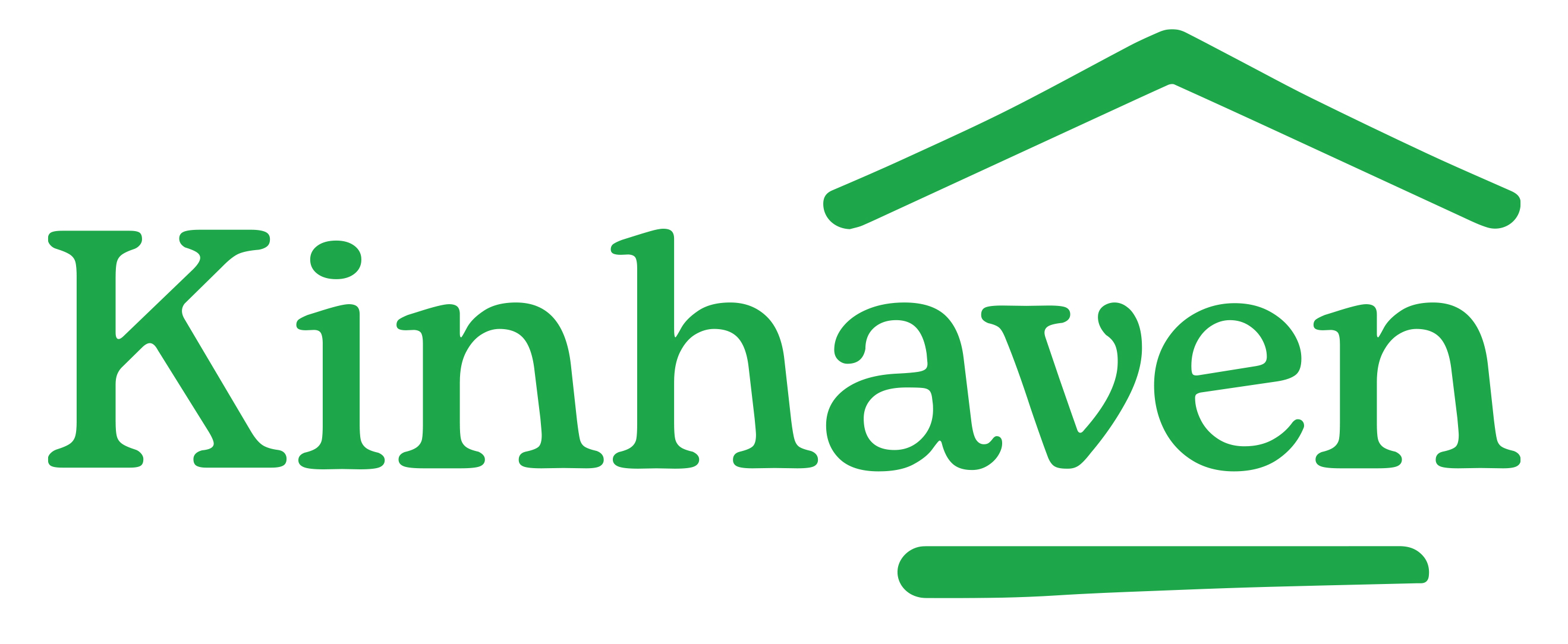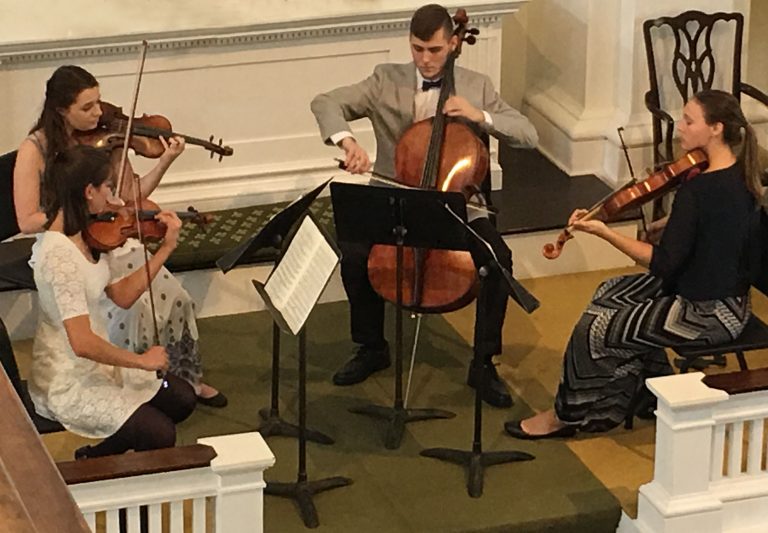The Lux Quartet, a student chamber music group at Florida State University, takes an “investigative and caring approach to quartet playing,” says Shannon Thomas, their coach.
An assistant professor of violin at FSU, Shannon encouraged the group to apply to the Kinhaven Young Artist Seminar, a one-week, intensive chamber music program launched four years ago by cellist Adam Grabois. (She and Adam teach at the Seminar as well as at Kinhaven’s six-week summer program for high school-age students.)
Shannon felt the group would thrive under “Kinhaven’s vision of collaborative, non-competitive music-making.” And Lux was excited about the opportunity to spend a week of intensive study in Vermont. The members submitted a group resume and an audition video of Haydn’s Lark Quartet, and they were in.

Lux violinist Maggie Ernst said the Kinhaven campus felt familiar – she hails from a rural area – but the rustic setting was quite a change for the rest of the Lux Quartet members. On thinking back to that first day, violist Amanda Hamilton recalls, “It seemed like a surreal dream.” While the campus was breathtaking, it was “even more amazing to meet all those great musicians and work in a non-competitive environment,” Maggie says. Cellist Todd Humphrey remembers how nice it was to be immediately welcomed into Kinhaven’s many traditions, such as folk dancing.
During their stay at Kinhaven, Lux learned the Dvořák “American” string quartet. The benefits of working so intensively on that one work included gaining confidence as a group and learning time management skills and rehearsal techniques – “getting straight to the point,” as Todd explains.
Musicians have a desire to grow and do well personally, “but in a chamber music setting that can’t happen until personal goals are put aside to creatively make music with others,” Amanda points out. Subsuming individual goals into group goals has the effect, Todd says, “of our all wanting each other to do well. We didn’t go with the desire to be ‘number one.’ We wanted to showcase what we accomplished. So when we heard the support of our peers at concerts, we knew it was because they wanted us to do well.”
Another feature of the Young Artist Seminar is that the musicians prepare a work for chamber orchestra and they do so with no conductor. Maggie was intrigued by the idea of a “leaderless orchestra.” Amanda recalls that it was key “to figure out how to work together to make musical decisions.” A lot of the discussions ended with the musicians agreeing to experiment. Todd observes that, “You can talk and talk, but until you try it you won’t know. So we’d try things and the group would respectfully deliberate and decide on the course of action.” That process was valuable, says violinist Robin Tozzie, because “what we present in the end is a group collaboration.”
Shannon, Lux’s coach, says that what the musicians are saying makes her heart burst with pride. “For so many personalities to work together to make a meaningful performance – that says a lot about the leadership they’re learning.” Adam, the Seminar’s founding director, adds that what the students are saying “is gratifying, because it aligns so well with what we had in mind in designing this program as a bridge to professional life.” While knowing it would sometimes be an uncomfortable experience, “we let them explore, gave them a gentle steer now and then, but let them make the discoveries on their own and feel a well-deserved sense of accomplishment.”

An important component of Kinhaven’s mission is community outreach, and the Young Artist Seminar takes that very seriously. “We performed in a church, a library, and a bookstore,” says Amanda, who enjoyed the small venues because, “after the performance you get to speak to the audience; it’s less formal, more intimate, and more of a special experience.”
The community looks forward to Kinhaven’s performances just as much as the students do. Jon Bliss, minister at the Old Parish Church in Weston, says Young Artist Seminar performances have been “a very positive addition to the longstanding tradition of Kinhaven choral and instrumental performances” the church hosts. “It’s a magical event when the students visit us, and we feel fortunate to be sitting with folks who are so engaged in refining their art,” he says. He also appreciates “the great sense of liveliness and engagement with the creative world that Kinhaven embodies.” Bob Brandt, chair of the church’s board, adds that Kinhaven concerts have supported the church’s Hearts and Voices Series, which raises funds for local nonprofit organizations. Bob is impressed by the high quality of the Young Artist Seminar concerts, “especially their ability to perform as teams rather than as individuals,” many of whom have not worked together before. “This goes to the values that the Kinhaven leadership has promulgated in these students,” he concludes.
The Lux Quartet is working on another Haydn quartet, and they say they are able to do that successfully based on ideas they picked up at Kinhaven. As they are students in different years, the long-term future of the quartet is unclear. “We have our hopes as individual and professional musicians,” Todd says, “and we have a bond that won’t go away no matter what we do in our professional lives.” Robin concurs: “We’ve agreed that whenever we come back we’ll play together — we love it and have become better people for it.”

